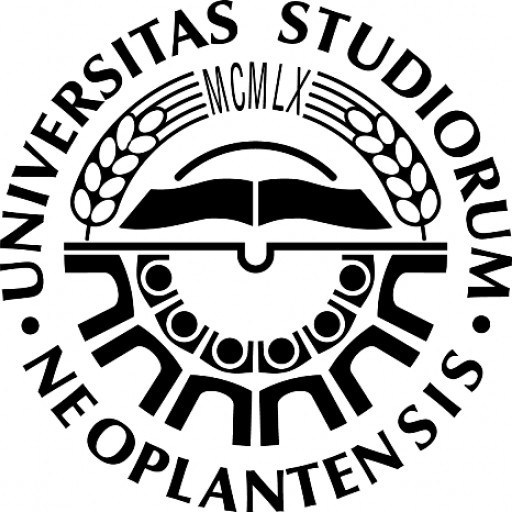The Master’s Degree Programme in Hydraulic, Water Resources and Environmental Engineering at the University of Novi Sad offers a comprehensive curriculum designed to equip students with advanced knowledge and practical skills in the fields of hydraulic engineering, water resources management, and environmental protection. This programme is tailored for graduates seeking specialized expertise to address modern challenges related to sustainable water use, infrastructure development, and environmental conservation. Students will explore a wide range of topics including hydrological analysis, hydraulic structures design, water supply systems, wastewater treatment, and environmental impact assessment. The programme emphasizes a multidisciplinary approach, integrating theoretical fundamentals with practical applications, laboratory work, and field studies to prepare graduates for careers in public institutions, private companies, and international organizations involved in water management and environmental protection. Through interdisciplinary coursework and research projects, students will develop critical thinking, problem-solving abilities, and technical proficiency necessary to innovate solutions for water scarcity, pollution control, flood management, and climate change adaptation. The programme also offers opportunities for international cooperation and exchange, fostering a global perspective on water-related issues. Graduates will be prepared for roles in designing and managing hydraulic infrastructure, implementing environmental policies, conducting scientific research, and contributing to sustainable development projects. The education provided by this master’s programme aims to produce professionals who can effectively contribute to environmental resilience and water security, ensuring the responsible stewardship of vital water resources for current and future generations.
The Hydraulic, Water Resources and Environmental Engineering study program at the University of Novi Sad is dedicated to providing students with comprehensive knowledge and skills necessary for addressing the complex challenges related to water management, environmental protection, and sustainable development. The program combines theoretical foundations with practical applications, equipping graduates to design, analyze, and manage hydraulic systems and water resources efficiently and responsibly. Students will explore core topics such as fluid mechanics, hydraulics, hydrology, water quality assessment, environmental engineering, and the principles of sustainable development. The curriculum is designed to foster understanding of the physical and chemical processes affecting water systems, as well as the technological and managerial approaches required for effective water resource management and environmental protection.
Throughout the course of study, students will engage in a variety of practical exercises, laboratory work, and project-based learning activities that enhance their problem-solving capabilities. They will learn to utilize modern software tools for hydraulic modeling, water data analysis, and environmental impact assessments. The program also emphasizes interdisciplinary collaboration, preparing students to work within teams comprising engineers, environmental scientists, policy makers, and community stakeholders.
Graduates of this program will be well-prepared for careers in public and private sectors, including water utility companies, environmental consulting firms, government agencies, and international organizations focused on water resources and environmental sustainability. They will have the skills necessary to develop innovative solutions for water supply systems, flood prevention, wastewater treatment, and ecological preservation. The program encourages lifelong learning, research, and active participation in initiatives aimed at protecting water resources and promoting sustainable environmental practices. By completing this program, students will contribute to solving pressing water and environmental issues facing society today, ensuring safe, sustainable, and resilient water systems for future generations.
Program requirements for the Hydraulic, Water Resources and Environmental Engineering Bachelor's program at the University of Novi Sad include a strong foundation in mathematics, physics, and chemistry, which are essential for understanding core principles of engineering and environmental sciences. Prospective students are expected to have completed secondary education with emphasis on mathematics and sciences, demonstrating their capability to undertake rigorous technical coursework. Fluency in English is often preferred, given that some specialized literature and potential exchange programs might require it; however, proficiency requirements are typically specified by the university. Applicants must submit relevant certificates and documentation proving their educational background and language skills if applicable. Mathematics courses are fundamental, covering calculus, algebra, and differential equations, which underpin problem-solving in fluid mechanics and water resource modeling. Physics courses focus on mechanics, thermodynamics, and environmental physics, providing a scientific basis for understanding natural phenomena and engineering systems. Chemistry modules contribute to knowledge about water chemistry and pollutant analysis, critical for environmental protection. The program also emphasizes the importance of computer literacy, requiring students to be familiar with programming, engineering software, and data analysis tools essential for modeling, simulation, and data interpretation in water and environmental engineering projects. Additionally, students must complete practical training and laboratory work that reinforce theoretical knowledge through hands-on experience. These practical aspects are integral and often include internships, fieldwork, and project-based assessments, designed to prepare students for professional challenges in the water resources and environmental sectors. Enrolment procedures typically include passing entrance examinations or assessment of previous academic records, depending on the academic year and admission policies. Continuous academic performance and active participation in coursework are necessary for progressing through the program successfully. The curriculum is structured to promote interdisciplinary learning, integrating knowledge from civil engineering, environmental science, and technology, ensuring graduates are capable of tackling complex water management and environmental sustainability issues.
The financing of the Hydraulic, Water Resources and Environmental Engineering program at the University of Novi Sad is structured to support both domestic and international students through a combination of government grants, scholarships, student loans, and self-financing options. Tuition fees for local students are subsidized by the Serbian government, which significantly reduces the financial burden and makes higher education accessible to a broader population. International students are required to pay tuition fees, which are established annually and are comparable to those for similar engineering programs in the region.
The program offers various scholarship opportunities, which are awarded based on academic excellence, social criteria, or specific achievements in related fields. These scholarships aim to promote talented students and support their educational pursuits. Additionally, students have access to governmental and international funding sources designed to facilitate mobility and academic exchange programs, such as Erasmus+ grants, which bolster financial support during study periods abroad or participation in joint projects.
Students can also finance their studies through loans from approved financial institutions, with favorable repayment terms in accordance with national policies on higher education financing. The university provides information and assistance on available funding options, including guidance on applying for scholarships and loans, ensuring that students can plan their finances effectively throughout their studies.
Part-time work opportunities are available on or near campus, allowing students to gain practical experience and contribute financially to their education without disrupting their academic progress. The university also collaborates with industry partners to promote internships and cooperative education programs, which may include stipends or other financial incentives.
Overall, the financing structure of the Hydraulic, Water Resources and Environmental Engineering program is designed to ensure that students have multiple avenues to fund their studies, emphasizing accessibility, support for academic achievement, and preparation for future employment opportunities in the national and international labor markets.
The Bachelor's degree program in Hydraulic, Water Resources, and Environmental Engineering at the University of Novi Sad offers students a comprehensive education in the design, analysis, and management of water systems, environmental protection, and sustainable development. The program aims to equip students with theoretical knowledge and practical skills necessary for solving real-world challenges related to water resources, hydrology, hydraulic structures, and environmental systems. Throughout their studies, students engage with subjects such as fluid mechanics, hydrological modeling, water supply and wastewater management, environmental impact assessment, and sustainable development practices. The curriculum emphasizes the importance of interdisciplinary approaches combining engineering, environmental sciences, and management principles to address complex water and environmental issues. The program prepares graduates for careers in water resource management, environmental consultancy, hydraulic engineering projects, and public policy development regarding ecological conservation and water safety. Students benefit from laboratory work, field exercises, and collaborative projects with industry partners, which enhance their practical skills and employability. Upon completion, graduates can pursue further specialization through master's studies or enter the workforce in relevant sectors such as municipal water services, environmental agencies, construction companies, or international organizations engaged in water and environmental management. The University of Novi Sad ensures that the program remains aligned with the latest technological advances and regional development needs, fostering innovation and sustainable solutions in the field of water resources and environmental engineering.







